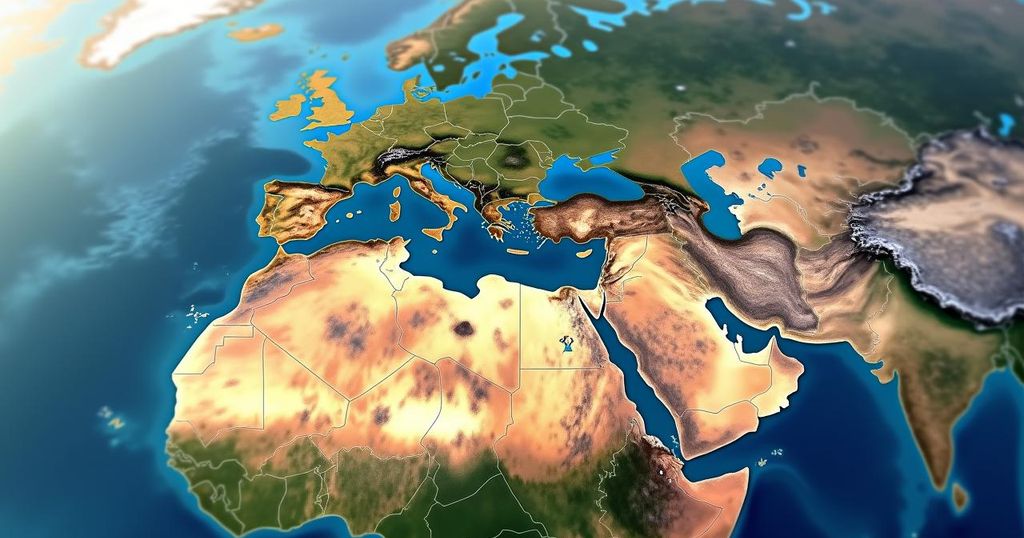Saudi Arabia, the UAE, and Qatar have decided to restrict Israeli airspace utilization to prevent military actions against Iran and to protect their oil facilities from possible Iranian retaliation. This decision comes amid rising tensions, with Israeli threats towards Iran and Iran’s recent missile attacks against Israel. Gulf states are urging the US to intervene to deter Israeli aggression that could destabilize the region and affect global oil supplies.
In a significant diplomatic move, several Persian Gulf nations, specifically Saudi Arabia, the United Arab Emirates, and Qatar, have issued a decree prohibiting Israel from utilizing their airspace for any military actions directed at Iran. The decision, reported by multiple sources and communicated to the United States, underscores the Gulf countries’ concerns about potential retaliatory attacks from Iran or associated groups targeting their vital oil production infrastructure in response to any Israeli aggression. The region is currently witnessing heightened tensions as Israel has demonstrated intentions to engage in military action against Iran, prompting Tehran to issue stern warnings of a fierce reaction. In recent developments, Iran executed an extensive missile strike against Israel as part of Operation True Promise 2, signaling its readiness to retaliate against Israeli offensives. Analysts note that the Gulf states are actively seeking intervention from Washington to dissuade Israel from escalating military operations against Iranian oil facilities, given their critical reliance on oil exports and the potential ramifications on global oil markets. Furthermore, concerns have been expressed regarding the implications of an Israeli strike on regional security and oil prices, especially in light of the impending United States presidential election.
The geopolitical landscape of the Persian Gulf has been increasingly characterized by sectarian tensions, especially regarding Iran’s influence in the region. Saudi Arabia, the UAE, and Qatar represent key stakeholders in this delicate balance, given their significant oil production capabilities. The historical and ongoing animosities between Israel and Iran have recently intensified, with Israel openly threatening military action against Iran’s nuclear and military sites. This deterioration in relations poses substantial risks not only for regional stability but also for global oil supply and prices, making the Gulf states particularly vigilant about any developments that could spark conflict in their territories.
The decision by Saudi Arabia, the UAE, and Qatar to close their airspace to Israel reflects a calculated approach to safeguard their national interests against potential Iranian retaliation. Amid rising tensions and fears of military escalation, these nations are navigating a complex geopolitical landscape while lobbying for diplomatic remedies to prevent further conflict and protect the vital oil sector, which serves as the backbone of their economies.
Original Source: www.presstv.ir






